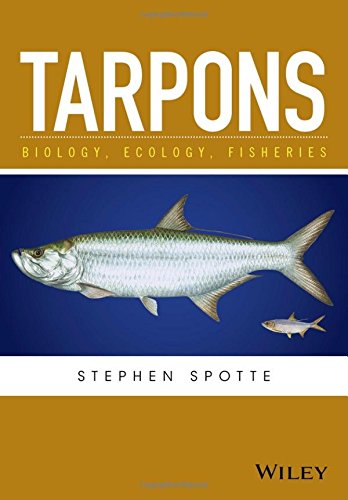

Most ebook files are in PDF format, so you can easily read them using various software such as Foxit Reader or directly on the Google Chrome browser.
Some ebook files are released by publishers in other formats such as .awz, .mobi, .epub, .fb2, etc. You may need to install specific software to read these formats on mobile/PC, such as Calibre.
Please read the tutorial at this link. https://ebooknice.com/page/post?id=faq
We offer FREE conversion to the popular formats you request; however, this may take some time. Therefore, right after payment, please email us, and we will try to provide the service as quickly as possible.
For some exceptional file formats or broken links (if any), please refrain from opening any disputes. Instead, email us first, and we will try to assist within a maximum of 6 hours.
EbookNice Team

Status:
Available4.4
39 reviewsStephen Spotte, Mote Marine Laboratory, Sarasota, Florida, USA
Tarpons arose from an ancient lineage, and just two species exist today, confined to the tropics and subtropics: Megalops atlanticus in the western and eastern Atlantic and Megalops cyprinoides distributed widely across the Indo-West Pacific. The Atlantic tarpon is considered king of the saltwater sport fishes and supports a multi-billion dollar recreational fishery in the U.S. alone. The Pacific tarpon, which is much smaller, is less valued by anglers. Both have limited commercial value but offer considerable potential for future aquaculture because of their hardiness, rapid growth, and ease of adaptation to captivity.
This book is the latest and most thorough text on the biology, ecology, and fisheries (sport and commercial) of tarpons. The chapters comprise clear, intricate discourses on such subjects as early development and metamorphosis, population genetics, anatomical and physiological features and adaptations, migrations, reproductive biology, and culminate with a concise overview of the world's tarpon fisheries. A comprehensive appendix includes Spotte's original translations of important papers published previously by others in Spanish and Portuguese and unavailable until now to English readers.
Tarpons: Biology, Ecology, Fisheries will be of considerable interest and use to fishery and research biologists, marine conservationists, aquaculturists, and informed anglers